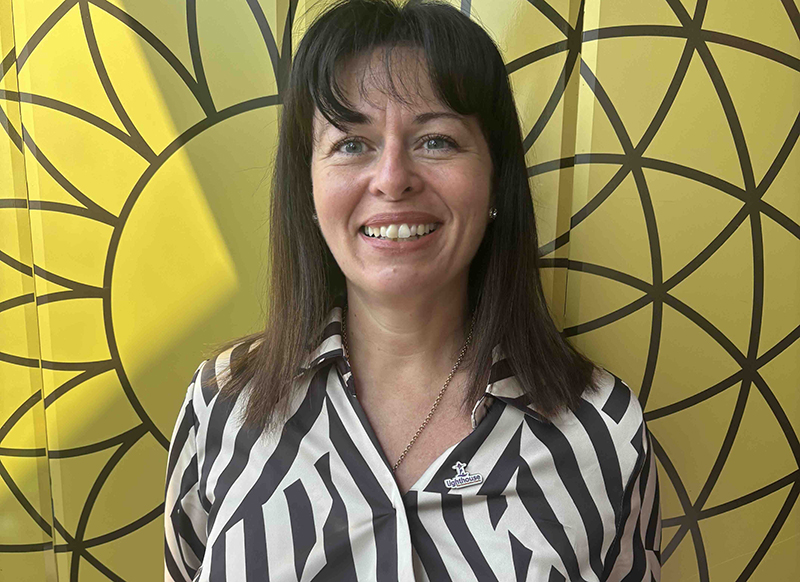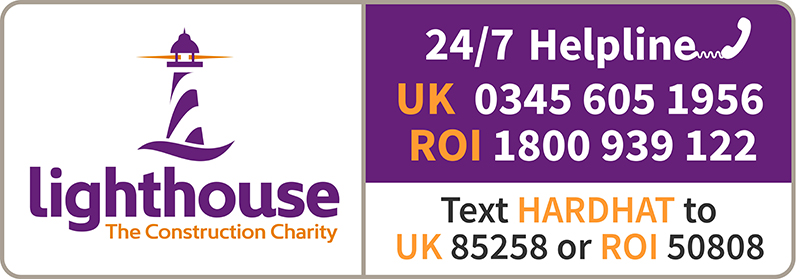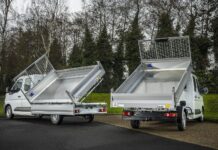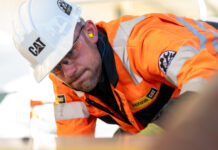
THE message that ‘it’s okay not to be okay’ is one which is becoming increasingly normalised within the UK construction industry – but there’s still room for improvement.
That’s the view of Sarah Bolton, CEO of the Lighthouse Charity, which provides free and confidential support to construction workers and their families across the UK and Ireland.
Destigmatising mental health has been an area of huge focus within the industry in recent years, with more and more workers feeling reassured about seeking out support and opening up about feelings of anxiety, depression, and stress.
However, with an average of two construction workers taking their own lives every working day, there is still much to do in an industry renowned for demanding workloads and job insecurity.
Sarah told Project Plant that the Lighthouse Charity’s support is based on three pillars: physical, financial and emotional support. Anyone that works in the construction sector, including the trades and their families can reach out for support and guidance on a wide range of matters, from tax and legal concerns through to mental health issues, bereavement, addiction, and benefit entitlement.
The charity’s 24/7 helpline is manned by trained operatives. Help is also available via an app, a text facility, and a live chat service on the Lighthouse’s web page, which is staffed from 8am-8pm by real humans and translates into 100 languages as part of the charity’s aim to remove as many potential barriers to people seeking help as possible.
The Lighthouse Charity also works with a huge number of third-party organisations and can signpost callers to the relevant place if more specialist support is required.
“There’s such a varied mix (of reasons why people get in touch),” Sarah explained. “The top two things people most seek help for are financial support and emotional support. But all aspects of emotional, physical and financial wellbeing are inextricably linked, for example, if people don’t have money, they don’t eat well, and that affects everything.”
From counselling services to emergency financial aid and even food deliveries, the charity aims to provide holistic support for those who are struggling and works to equip them with the soft skills needed to support a sustainable future.
“Our helpline advisors use an assessment tool and ask some basic questions to understand what the caler needs support with. it’s not a long list of questions, it’s a personable conversation. Our advisors are not judgmental in any way and there are no barriers. If people are feeling a bit nervous, they can always start a conversation with our helpline team on our live web chat if that’s more comfortable for them. If someone is in crisis we implement an immediate safeguarding plan.”
The latest Lighthouse Charity Impact Report, published earlier this year, revealed that the charity delivered over £5 million of support and provided a lifeline to 5,695 families last year – a 29% increase on the previous year. Some 5,761 counselling sessions were also funded during the period.
Sarah highlighted a number of current challenges within the construction industry that are partly responsibly for driving record numbers of people to seek support. These include skills shortages, job insecurity, inconsistent working, and poor wellbeing, coupled with the ongoing cost-of-living crisis.
However, the figures also reflect increasing awareness of the Lighthouse Charity and the services available.
One reason behind this is the number of site visits being undertaken as part of the charity’s hugely successful #MakeItVisible on site initiative.
Last year, the #MakeItVisible team visited 572 sites across the UK and Ireland, engaged with over 28,000 operatives, and managed 88 active rescues, which refers to people who have approached the charity’s team expressing suicidal thoughts and who have been directed to immediate support and safeguarding.
“We’ve had some really successful campaigns to raise awareness of the support available through Lighthouse,” Sarah added. “During Covid, we had our ‘Help Inside the Hart Hat’ campaign, encouraging people to look out for those who may need some support and raising awareness of some of the issues being experienced by our construction workforce.
“Our #MakeItVisible on site initiative is now one of our most successful campaigns. Our team are all able to share their lived experiences and personal journeys – whether that’s around drugs and alcohol, money, family breakdown, depression, or mental health issues. And they are able to speak with workers in a down to earth and relatable way. It makes all the difference when someone who’s been in their shoes says, ‘I’ve been where you are, and there is help available.’ Last year, this initiative saw our team start conversations with 88 workers who expressed suicidal thoughts to the team.
“We are pleased to say that as a direct result of speaking with us, those people were immediately directed to support and safeguarding.”
In Scotland, the Lighthouse Charity has three committees – Scotland West, Scotland East and Scotland North. They share the message of support through a number of networking and fundraising events.
“The Scottish construction industry is brilliant,” added Sarah. “They’ve very much taken us on board and we are reaching more people.
“The events are always very well attended and we have incredibly loyal and generous supporters. The committees are very proactive and their local knowledge is invaluable in ensuring our construction community know about the support available.”
Lighthouse’s Wellbeing Academy offers a variety of soft skills and leadership training courses. To facilitate a flexible approach to learning, the free courses comprise self-paced e-learning, online tutor-led offerings, and Mental Health First Aid courses.
Wellbeing Exclusive courses include imposter syndrome (designed to help attendees realise their potential), suicide awareness, neurodiversity awareness, menopause, managing mental health in the workplace, nutrition for productivity, and drugs & alcohol. There are also resources designed to help workers manage debt and look after their credit file.
All the courses are free and can be accessed on the charity’s website.
Next year will be the Lighthouse Charity’s 70th anniversary. The organisation was established in 1956 and started out as a benevolent fund. The charity was incorporated in 2012 and has grown exponentially since then.
Sarah has been CEO since April 2024, having joined the charity in 2018 as wellbeing manager before progressing to director of charitable services.
Under her leadership, the charity has expanded its reach and refined its approach to delivering assistance to a sector that remains predominantly male and where the culture has traditionally not been one where people have always found it easy to speak openly about such matters.
“We always seek to understand our communities’ needs and ensure that we are delivering a variety of proactive and reactive resources to improve wellbeing,” Sarah remarked. “The industry understands there are problems and is doing its best to tackle those problems.
“However, there is always room for improvement. We’re still seeing two suicides every working day and that’s a conservative estimate – that’s what the statistics are telling us at the moment.
“We still have a massive issue with the stigma surrounding mental health and financial health. It’s okay to say that you’re not okay and I am continually saying that reaching out for support isn’t weakness, it’s strength.
“Our industry still struggles with this perception, but we’re working hard to change it.”
• If you or anyone you know is struggling, reach out for free and confidential support.
24/7 helplines: 0345 605 1956, (UK) 1800 939 122 (ROI)
Live chat www.lighthousecharity.org
Text HARDHAT to 85258 (UK) or 50808 (ROI)
Find out more at www.lighthousecharity.org












